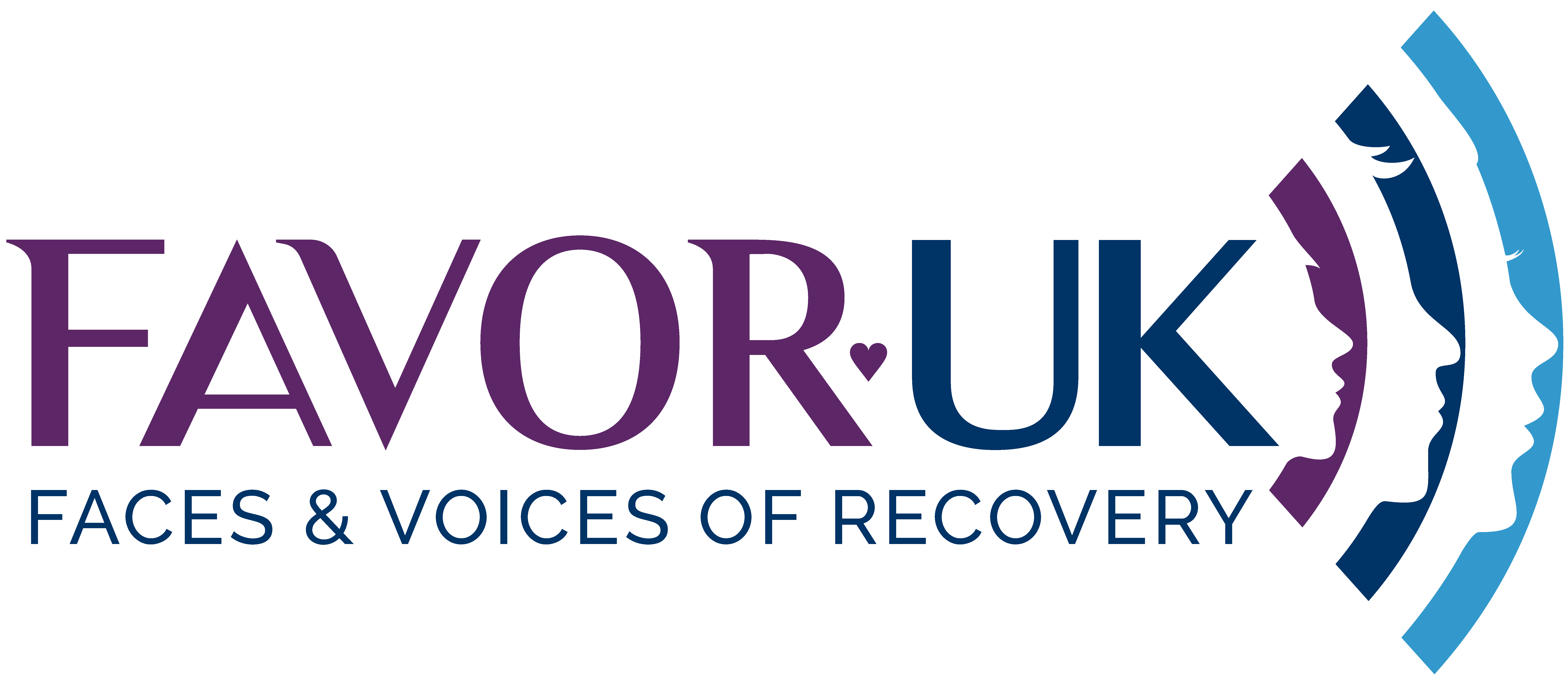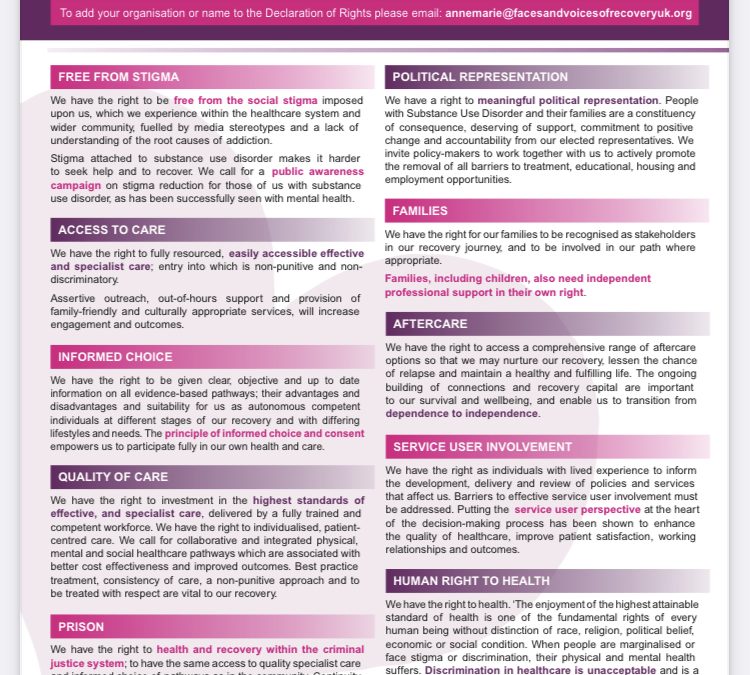When the work of our charity started back in 2009, we were driven by a vision to bridge the gap between harm reduction and recovery. It was critical to establish a continuum of care that started with harm reduction strategies and smoothly transitioned into recovery. We envisioned a balanced commitment to both, believing that such an approach would lead individuals to sustainable recovery and foster a strong recovery movement. Regrettably, the evolution of this vision has since diverged significantly from our original aspirations.
A significant positive milestone was our creation of
The UK Recovery Declaration of Rights in 2018, a monumental achievement in the field of addiction recovery. This initiative brought together a diverse array of organisations, each with its own philosophy on treatment and recovery, yet united under a common goal. Inspired by the principles of the Geneva Convention, the Declaration emphasised the fundamental rights of those in recovery and symbolised unity in a field often fragmented by deep ideological divides. The unification of 148 organisations from across the UK—ranging from advocates for drug legalisation to supporters of stringent abstinence-based programs—demonstrated the potential for consensus, making it a landmark achievement in fostering inclusivity and shared objectives.
However, the current state of harm reduction has expanded well beyond responsible or compassionate measures. It now ventures into areas that arguably promote drug use, driven by an ideological push for legalisation. This includes advocacy for ‘safe supply’ initiatives offering free medical-grade heroin and cocaine, ‘safe’ injecting facilities or drug consumption rooms as they are also known, and Heroin-Assisted Treatment (HAT) where addicts receive controlled quantities of pharmaceutical-grade heroin. There are also calls for the establishment of more of the so-called stabilisation centers, which aim to provide a safe space for acute drug intoxication management. Additionally, this encompasses ‘safe’ checking services and the distribution of a variety of different drug-use paraphernalia. Recent calls in Scotland for free tourniquets also fall into this category—all of which prioritise immediate harm prevention at the expense of long-term recovery goals
This shift has been driven by a missionary saviour complex, where well-meaning but misguided policies exacerbate, rather than alleviate, the cycle of addiction. Over the past decade, there have been significant cuts to funding for recovery-focused services, especially in Scotland, where drug-related deaths have soared due to the centralisation and professionalisation of addiction services. Unlike England, where the treatment workforce, many in the third sector includes a diverse range of professionals and often features individuals with personal recovery experience who have received professional training, Scotland’s public sector predominantly relies on medical or social care professionals. This approach has led to a lack of recovery orientation and an increase in drug-related fatalities.
Today, what began as an effort to prevent the spread of blood-borne viruses has morphed into an industry more focused on sustaining drug use than promoting recovery. This disturbing shift has prioritised the provision of drugs over supporting recovery, straying far from the original goals of harm reduction.
The political landscape further complicates this, with policies such as drug consumption rooms and decriminalisation/legalisation now driven more by political agendas than by a genuine commitment to public health. It has also seen the ebbing away of public support for the work we do in the whole addiction sector.
FAVOR UK, once proud of its role in bridging these debates and fostering unity, now finds itself reassessing its stance due to the growing political and philosophical divides. Despite political claims to the contrary, the reality on the ground since 2010 shows that the UK’s treatment system is not predominantly focused on abstinence-based recovery, as is often portrayed. Instead, the vast majority of the £750 million allocated annually is still spent on opioid substitution therapy (OST) and individual case management, not on fostering recovery.
As we move forward, our mission is clear: to make recovery visible and advocate for accessible, choice-driven addiction services that offer comprehensive care encompassing both harm reduction and genuine recovery paths. Despite the challenges, we remain dedicated to advocating for a system that supports long-term recovery, striving to meet the real needs of those we serve.
Looking ahead, our mission remains to make recovery visible and advocate for accessible, choice-driven addiction services that include both genuine harm reduction and genuine recovery paths. We are committed to a treatment system that truly supports long-term recovery and meets the actual needs of those we serve.
In response to these evolving challenges, the role of FAVORUK’s advocacy caseworker service has become more crucial than ever. This service offers direct support and guidance to individuals navigating the complexities of the recovery process, & service provision advocating for individual rights and better service access. By leveraging our collaboration with treatment organisations, we aim to challenge the status quo and set ambitious goals. It’s not just about sustaining what we’ve built; it’s about elevating it to more effectively address the real needs of those we serve. The chasm has indeed widened, making our job all the more vital, and our advocacy to fight for the paths that people want, rather than just what is available, is more important than ever.

